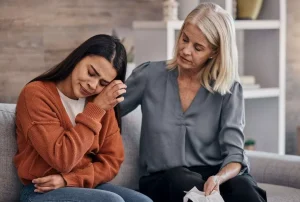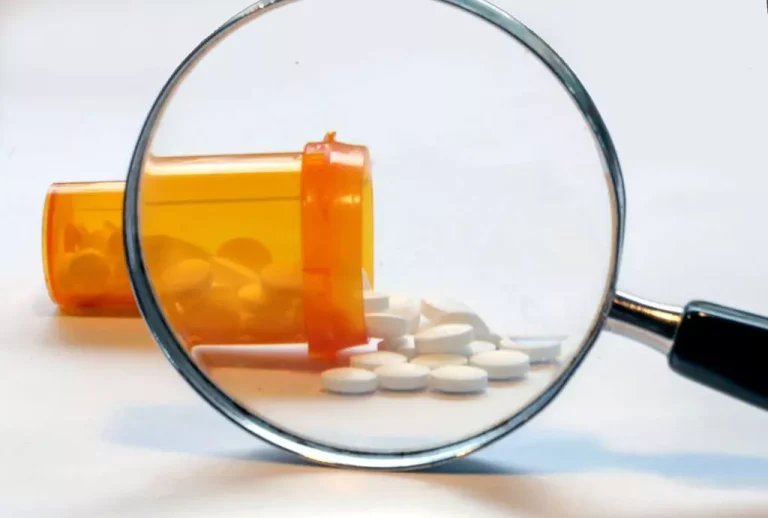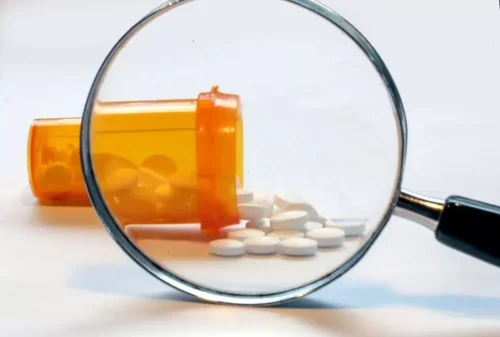
Binge drinking or excessive alcohol consumption is likely to negatively impact sleep more than light or moderate drinking. Because alcohol’s effects vary for each person, even small amounts can worsen sleep quality for some people. Long-term alcohol use negatively affects REM cycles and decreases sleep quality. Over time, sleep deprivation can increase the risk of several chronic health conditions. One of the issues a person may find challenging to cope with is insomnia – the inability to fall asleep when all you want to do is close your eyes and rest.
- Consuming alcohol may present a higher risk of developing sleep apnea.
- Alcohol relaxes upper airway dilator muscles (decreasing airway patency) increasing nasal and pharyngeal resistance (58,59), and it prolongs the time required to arouse or awaken after an apnea occurs (60).
- Another way alcohol can disrupt your sleep is by causing you to make trips to the bathroom to urinate.
- If this pattern repeats daily, a person is more likely to become dependent upon alcohol to fall asleep.
The Truth About Alcohol and Sleep
In the short term, alcohol can relax you and serve as an effective sleep aid. However, scientific consensus maintains that chronic use ultimately disrupts sleep-related physiology–even among those who do not meet diagnostic criteria for alcohol dependence. “The effects of circadian desynchronization on alcohol consumption and affective behavior during alcohol abstinence in female rats.” Behavioral Neuroscience. If you fancy a glass of wine with dinner or a nightcap before bed, you might want to cap the Chiante and put the Negroni down — research shows that even low alcohol intake can stymie your sleep. Sometimes when we’re staring at the ceiling in the middle of the night, we can go back to that lie about a drink helping us to sleep. Picking up a drink will only start the cycle of disrupted sleep again from the start.

How can alcohol worsen symptoms of other sleep disorders?
Suboxone (buprenorphine/naloxone) is indicated for the treatment of opioid dependence in adults. Suboxone should not be taken by individuals who have been shown to be hypersensitive to buprenorphine or naloxone as serious adverse reactions, including anaphylactic shock, have been reported. Taking Suboxone (buprenorphine/naloxone) with other opioid medicines, benzodiazepines, alcohol, or other central nervous system depressants can cause breathing problems that can lead to coma and death. Other side effects may include headaches, nausea, vomiting, constipation, insomnia, pain, increased sweating, sleepiness, dizziness, coordination problems, physical dependence or abuse, and liver problems. For more information about Suboxone (buprenorphine/naloxone) see Suboxone.com, the full Prescribing Information, and Medication Guide, or talk to your healthcare provider.
Yoga & Recovery From Substance Use: A Complete Guide
Lastly, solid sleep can help maintain a strong immune system, reducing the risk of falling ill and ensuring a more consistent work schedule. Here is a great article if you want to read more about alcohol and sleep. Since dream sleep is inhibited by alcohol in the first part of the night there can be a “rebound” of dream sleep which can lead to nightmares or vivid dreams.
An estimated 20% to 30% of people report drinking to manage insomnia.7 While alcohol can initially cause sedation, over time, alcohol causes major disruptions in the quality of sleep. While heavy alcohol use can trigger insomnia, the opposite is also true. People with insomnia have an increased risk of developing alcohol use disorder, potentially because many individuals turn to alcohol as a sleep aid. Alcohol consumption can have a significant impact on various sleep disorders. Understanding these relationships is crucial for managing both alcohol use and sleep health effectively.
Why Does Alcohol Make Me Sleepy?
Sleep is more severely disturbed during withdrawal and recovery, with longer sleep latency, more arousals, poor sleep efficiency, reduced slow wave sleep and REM rebound (42–45). Cross-sectional studies suggest that for nearly half of alcohol dependent patients sleep disturbance persists for months after last use (46,47), and can last for 2 years or longer (48,49). Most reports suggest that their sleep improves slowly over time (50,51). Numerous neurotransmitter systems and other substances are involved in the regulation of sleep and various sleep stages.

Quit alcohol, and your body Sober living house begins to readjust without its habitual depressant. This recalibration process can lead to a collection of symptoms known as alcohol withdrawal. These symptoms can range from mild to severe but often include significant disruptions to sleep.
- But for some, post-acute withdrawal syndrome can continue for weeks to months.
- However, as the night progresses, alcohol disrupts normal sleep stages, leading to poorer overall sleep quality.
- These exclusion criteria were considered on the basis of the influence that both drug therapies and particular living conditions might have on sleep quality.
- Yes, lifestyle changes significantly impact sleep quality during alcohol withdrawal.
- If you do have an alcohol dependency, you should take the crucial step of seeking professional medical help to safely treat your AUD.

Sleep problems may occur during active drinking, acute alcohol withdrawal, and protracted withdrawal. Although most sleep abnormalities improve over time, some problems persist for months to years after initiating abstinence. Disturbances of sleep may either precede or follow the development of alcoholism. Whether sleep disturbances predispose some children and adults to develop abnormal patterns of drinking is unknown. Some evidence suggests that alcohol is more reinforcing in non-alcoholic people with insomnia does alcohol cause insomnia than in people without insomnia, suggesting an increased likelihood of alcohol use in people with insomnia. Similarly, people with insomnia are more likely to report using alcohol to aid sleep than are people without insomnia.

How Alcohol Affects Sleep
- Polysomnography is not helpful in differentiating among these disorders or their treatment, and thus should not be considered a primary diagnostic instrument for patients with psychiatric disorders and sleep complaints.
- Specifically, the results obtained from the insomnia severity index questionnaire showed that there was a higher percentage of night workers (23%) with insomnia than day workers (14.31%).
- Alcohol use and the genesis of sleep disturbances can exert a strong negative pressure on already vulnerable physiological systems, leading to the onset of various illnesses and, although less important, decreased work performance.
- Any treatment center receiving calls from the site is a paid advertiser.
- Maintain your profile by updating your photos, video links, treatment services, and contact details to ensure optimal visibility.
Some people may find they can’t sleep after drinking or their sleep quality suffers, and the science backs up https://ecosoberhouse.com/article/support-for-those-who-struggling-with-alcohol-addiction/ this reality. While alcohol can make it easier to fall asleep and stay asleep for a few hours, it’s important to note that alcohol’s sedative effect wears off during the night. Still, you may think drinking before bed is a good idea if you have trouble relaxing and falling asleep.
Researched, fact-checked and transparent articles and guides that offer addiction and mental health insight from experts and treatment professionals. When you drink alcohol, it acts as a depressant for your central nervous system, meaning that it can cause brain activity to slow down. Our circadian rhythm is sometimes called our “biological clock”—the process that regulates the way our bodies function during each 24-hour daily cycle. The simplest way to keep alcohol from interfering with your sleep is to just not drink.

